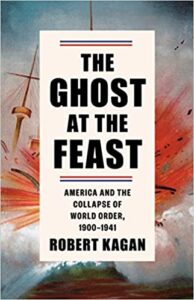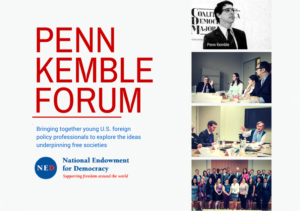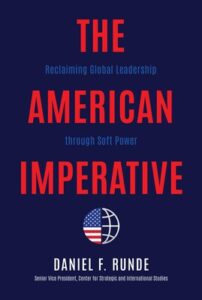 Democracies’ support for Ukraine is not only in line with their fundamental values, but also in their strategic interest, a leading analyst suggests.
Democracies’ support for Ukraine is not only in line with their fundamental values, but also in their strategic interest, a leading analyst suggests.
“Americans continually struggle to reconcile contradictory interpretations of their interests — one focused on security of the homeland and one focused on defense of the liberal world beyond America’s shores,” says Brookings Institution historian Robert Kagan, author of the recently-published The Ghost at the Feast: America and the Collapse of World Order, 1900-1941.
“The first conforms to Americans’ preference to be left alone and avoid the costs, responsibilities and moral burdens of exercising power abroad. The second reflects their anxieties as a liberal people about becoming what F.D.R. called a ‘lone island’ in a sea of militarist dictatorships. The oscillation between these two perspectives has produced the recurring whiplash in U.S. foreign policy over the past century.”
International relations theorists, Kagan tells The New York Times’ Thomas L. Friedman, “have taught us to view ‘interests’ and ‘values’ as distinct, with the idea that for all nations ‘interests’ — meaning material concerns like security and economic well-being — necessarily take primacy over values. But this is not, in fact, how nations behave. Russia after the Cold War has enjoyed greater security on its western border than at practically any time in its history, even with NATO’s expansion. Yet Putin has been willing to make Russia less secure to fulfill traditional Russian great power ambitions which have more to do with honor and identity than with security.” RTWT
Despite Beijing’s huge investments in projecting its sharp power, Australia’s Lowy Institute, in its annual survey of the balance of power in Asia, finds the United States still in first place ahead of China, The Post’s Max Boot observes. The index notes that the United States leads in “future resources, resilience, defence networks, cultural influence, and military capability.”
Is the ‘cultural Cold War’ between the democratic West and Soviet Communism at all informative if not instructive when it comes to the new strategic competition with China?
 In 1953, the Eisenhower Administration established the United States Information Agency (USIA), whose mission was “to understand, inform and influence foreign publics in promotion of the national interest, and to broaden the dialogue between Americans and U.S. institutions, and their counterparts abroad,” notes David Lowe.
In 1953, the Eisenhower Administration established the United States Information Agency (USIA), whose mission was “to understand, inform and influence foreign publics in promotion of the national interest, and to broaden the dialogue between Americans and U.S. institutions, and their counterparts abroad,” notes David Lowe.
In the USIA’s final report, issued in 1999, then-acting director Penn Kemble told the story of the role USIA had played in convincing European governments to overcome opposition to countering Soviet deployment of short-range nuclear missiles in the 1980s, he writes for American Purpose. USIA conducted polls showing that European governments had been misled by Soviet-orchestrated propaganda pushing false narratives about European public opinion. “Many in the leadership of the Communist Party of the Soviet Union and elsewhere,” wrote Kemble, “began to realize that the democracies would defend themselves, and that the possibility of Soviet dominance in Europe was remote.”
 What should our global strategy look like in an age of renewed great power competition? And what must America offer to a newly empowered developing world when we’re no longer the only major player? CSIS analyst Daniel Runde asks.
What should our global strategy look like in an age of renewed great power competition? And what must America offer to a newly empowered developing world when we’re no longer the only major player? CSIS analyst Daniel Runde asks.
In The American Imperative (Post Hill Press, February 2023), he makes the case for building a new global consensus through vigorous internationalism and judicious use of soft power. At a forthcoming Vandenberg Coalition event, he makes the case for renewed American engagement in the developing world for our own prosperity and security, but also because foreign assistance and other forms of soft power are largely where this competition is going to be contested.
Feb 13, 2023 04:00 PM in Eastern Time (US and Canada). RSVP
Washington Post Live hosts a virtual book discussion on “The Ghost at the Feast: America and the Collapse of World Order, 1900-1941” with author Robert Kagan, a senior fellow at the Brookings Institution. 11 a.m. February 7, 2023. RSVP







